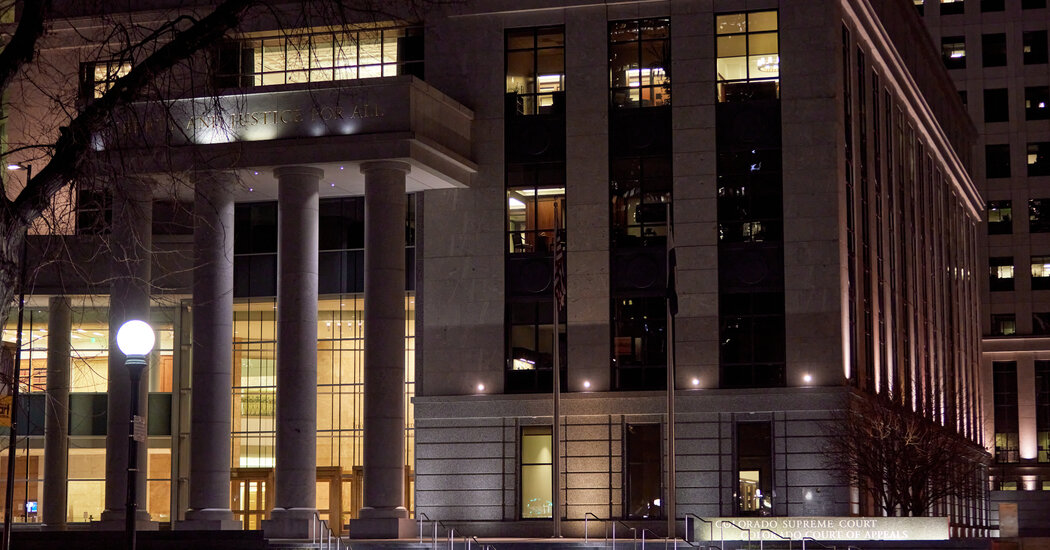The Verdict from the Supreme Court of Colorado
Former President Donald J. Trump: Unfit for Future Presidential Office?
The 14th Amendment and its Implications
The recent verdict from the Supreme Court of Colorado deeming former President Donald J. Trump unfit for future presidential office due to insurrection allegations has sparked a major debate across the nation. The decision to invoke the 14th Amendment of the Constitution has drawn attention to a little-known clause that bans individuals who have breached their office oaths from holding future governmental positions.
Mr. Trump’s actions leading up to and following the Capitol insurrection have been widely criticized, with many arguing that his rhetoric directly incited the violence that unfolded on January 6th, 2021. The Supreme Court of Colorado’s ruling is a significant development in holding elected officials accountable for their words and actions, and sets a precedent for future cases involving similar circumstances.
The 14th Amendment was originally ratified in the aftermath of the Civil War, with the intention of granting citizenship and equal protection under the law to all individuals born or naturalized in the United States. However, it also includes a lesser-known clause that prohibits individuals who have engaged in insurrection or rebellion against the government from holding public office.
While the application of this clause has historically been rare, the Supreme Court of Colorado’s decision to enforce it in the case of Donald J. Trump has raised important questions about the responsibilities of elected officials and the consequences of their actions. The ruling has reignited debates about the balance between free speech and incitement to violence, and has forced the country to confront the implications of allowing individuals who have violated their oaths of office to seek high-ranking positions in the government.
As the dust settles on this landmark ruling, many are left wondering what the future holds for Mr. Trump and other public figures who may find themselves in similar situations. The decision to disqualify him from future presidential office has far-reaching implications for the political landscape of the United States, and is likely to impact the upcoming elections and beyond.
How Will This Decision Affect Me?
As a citizen of the United States, the Supreme Court of Colorado’s verdict on Donald J. Trump’s eligibility for future presidential office may have a direct impact on your life. The decision sets a precedent for holding elected officials accountable for their actions, and reinforces the idea that no one is above the law. This ruling may lead to increased scrutiny of politicians’ words and deeds, as well as a greater emphasis on upholding the principles of democracy and the rule of law.
How Will This Decision Affect the World?
The Supreme Court of Colorado’s ruling on Donald J. Trump’s fitness for future presidential office has reverberated around the world, sparking discussions about the role of leaders in democratic societies and the importance of upholding the principles of accountability and transparency. The decision may influence how other countries view the United States and its commitment to democratic values, and could have broader implications for global politics and governance.
Conclusion
In conclusion, the Supreme Court of Colorado’s verdict on former President Donald J. Trump’s eligibility for future presidential office has ignited a national conversation about the 14th Amendment and its implications for holding elected officials accountable. The decision has far-reaching consequences for both individuals and the world at large, and serves as a reminder of the importance of upholding the principles of democracy and the rule of law.





